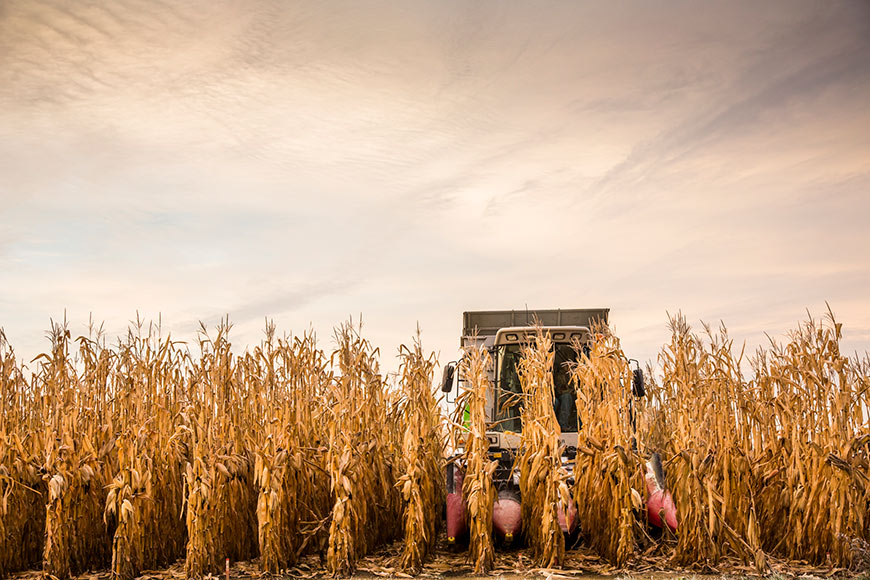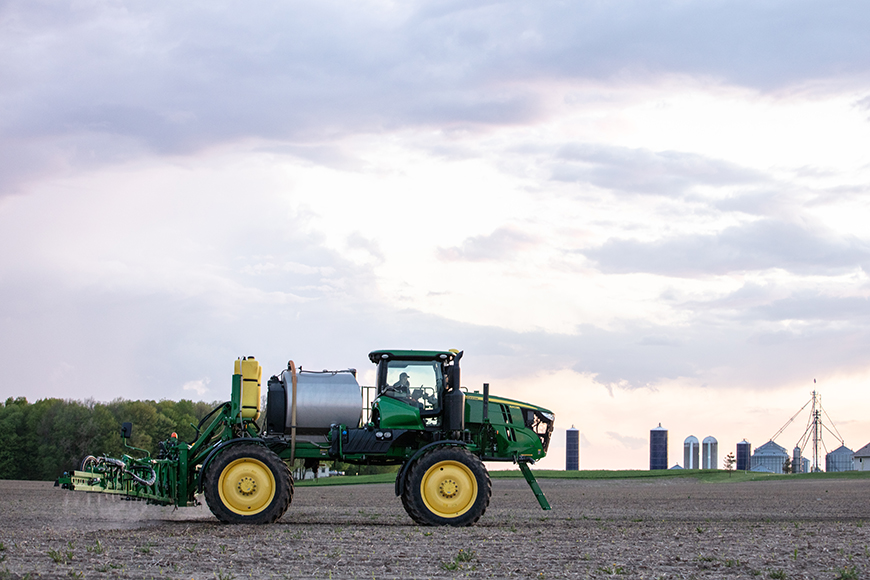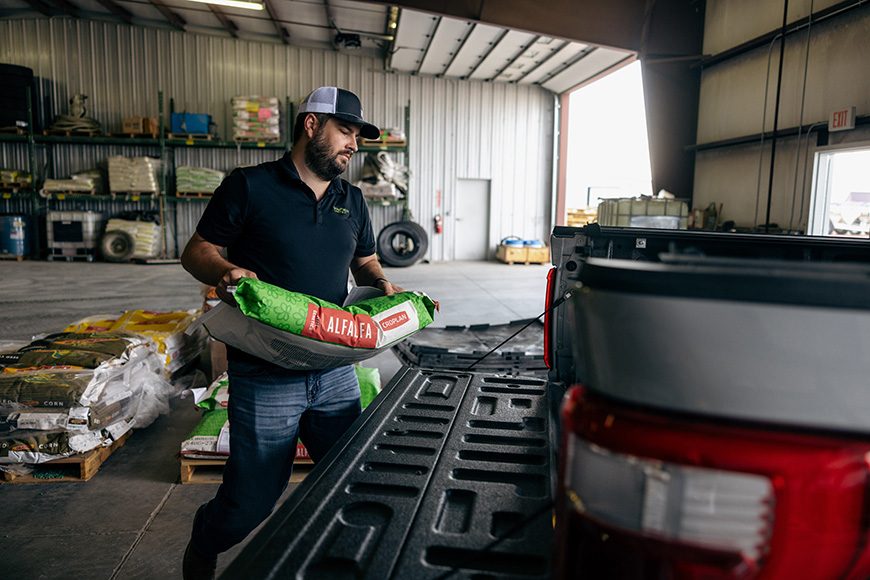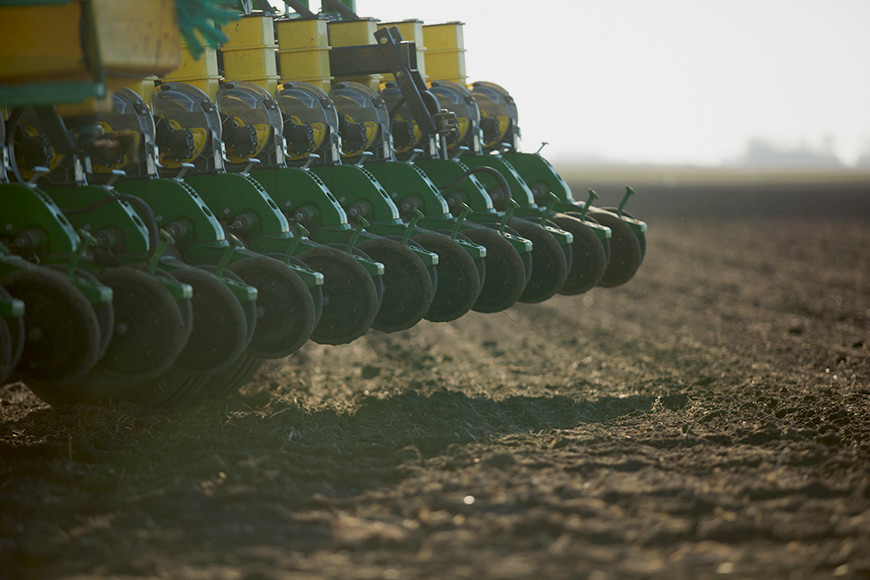How Sustainable Practices Can Help Boost Profit Potential
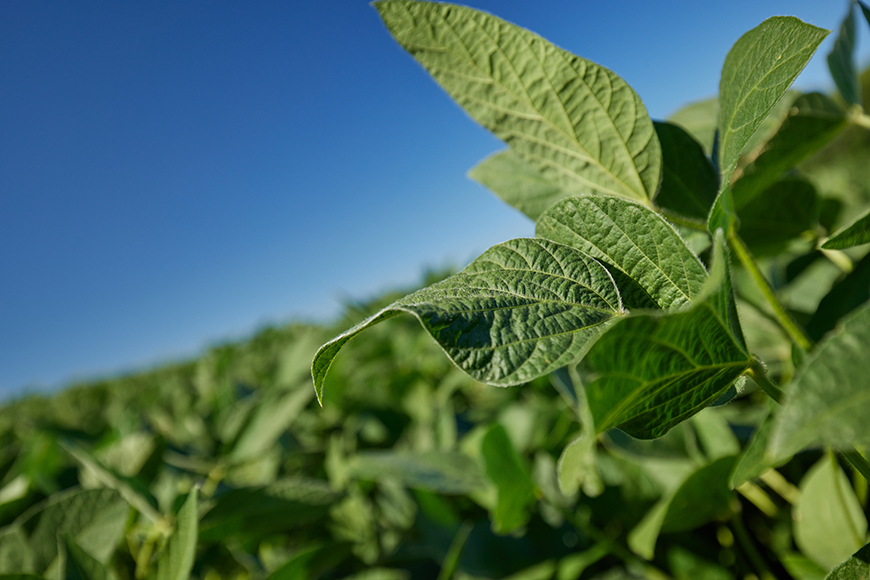
Sustainability may sound like an overused buzzword, but it holds deep meaning and potential for agriculture. On the farm, it’s about incorporating a holistic management system that supports both productivity and conservation. While sustainability usually isn’t associated with profitability, we’re going to discuss ways to overcome that misconception and realize positive ROI potential while incorporating sustainable practices.
The long-term benefits of healthy soil include improved nutrient cycling, which could reduce fertilizer costs, and increased yield stability, which may help you realize more bushels per acre, even when growing conditions aren’t ideal. Switching from conventional tillage to low- or no-till may also add fuel and machinery cost savings that could be beneficial to your bottom line.
Start Small
If you’re just starting your sustainability journey, I recommend choosing one field or production practice to focus on. For example, you may decide to plant cover crops in one field instead of trying to implement them across the whole farm. Starting small helps you manage risk and understand how a new practice could work on your farm.
Use Data To Guide Decisions
If you’d like to adopt more sustainable practices but aren’t sure where to start, a Truterra ag retailer has tools that can help. Truterra is a farmer-focused sustainability business that helps growers identify and implement profitable and sustainable production practices.
Measure Success
You’ve probably heard the phrase “what gets measured gets managed.” And that’s certainly true for sustainable production practices. If you can’t quantify the impacts of on-farm practices from an agronomic, economic and environmental perspective, you won’t fully understand their true benefit. The TruterraTM sustainability tool helps establish a baseline and monitor progress over time to track the profitability of your production practices.
Consider Ecosystem Marketplaces
Adopting sustainable practices offers the opportunity to capitalize on additional revenue streams by participating in ecosystem marketplaces. Carbon sequestration is gaining attention and is a viable option for growers who implement sustainable production practices. Your local retailer can help prepare you for carbon markets if you’re interested in exploring additional revenue streams.
Sustainability means something different to every farmer, and your journey will be unique. Your local WinField® United retailer can help you build a customized plan that preserves your legacy while maintaining your profitability potential.
All photos are either the property of WinField United or used with permission.
© 2022 WinField United. Important: Before use always read and follow label instructions. Crop performance is dependent on several factors many of which are beyond the control of WinField United, including without limitation, soil type, pest pressures, agronomic practices and weather conditions. Growers are encouraged to consider data from multiple locations, over multiple years and to be mindful of how such agronomic conditions could impact results. Truterra and WinField are trademarks of WinField United. All other trademarks are the property of their respective owners.
Soil Health
Soil is your operation’s most valuable natural resource, so preserving it should be a top priority to maintain productivity goals. Many practices can build soil health and structure, including incorporating cover crops, reducing tillage and diversifying the crop rotation. Soil health improves over time, so you won’t see immediate benefits and results when you adopt these practices. Try to keep realistic expectations and know you’re making more progress each year.The long-term benefits of healthy soil include improved nutrient cycling, which could reduce fertilizer costs, and increased yield stability, which may help you realize more bushels per acre, even when growing conditions aren’t ideal. Switching from conventional tillage to low- or no-till may also add fuel and machinery cost savings that could be beneficial to your bottom line.
Nutrient Management
Adopting advanced nutrient management practices is one of the easiest entries into sustainable production. There are several ways to achieve a more sustainable nutrient management strategy, including adopting zone or variable-rate applications. Adding nitrogen stabilizers is a simple way to protect your nitrogen investment and limit leaching into waterways. You could see a positive return on investment more quickly compared to implementing cover crop or tillage changes, which may not be as immediate. Developing a more prescriptive fertility strategy is a win-win from an environmental and economic standpoint.Environmental Protection
There are opportunities to protect water quality and the environment by adopting structural and land use conservation practices. Adding grass waterways, terraces, sediment basins and filter strips within fields are effective ways to reduce runoff. This can help reduce topsoil erosion to protect your field’s soil health and yield potential. Farmers can get support for these types of projects from their local NRCS offices, and there may be financial incentives for implementing conservation practices.Implementation Tips
Sustainable agriculture isn’t sustainable if you aren’t profitable. Consider the big picture, which includes long- and short-term benefits and challenges, before adopting new practices. Here are a few tips to get started in your sustainability journey.Start Small
If you’re just starting your sustainability journey, I recommend choosing one field or production practice to focus on. For example, you may decide to plant cover crops in one field instead of trying to implement them across the whole farm. Starting small helps you manage risk and understand how a new practice could work on your farm.
Use Data To Guide Decisions
If you’d like to adopt more sustainable practices but aren’t sure where to start, a Truterra ag retailer has tools that can help. Truterra is a farmer-focused sustainability business that helps growers identify and implement profitable and sustainable production practices.
Measure Success
You’ve probably heard the phrase “what gets measured gets managed.” And that’s certainly true for sustainable production practices. If you can’t quantify the impacts of on-farm practices from an agronomic, economic and environmental perspective, you won’t fully understand their true benefit. The TruterraTM sustainability tool helps establish a baseline and monitor progress over time to track the profitability of your production practices.
Consider Ecosystem Marketplaces
Adopting sustainable practices offers the opportunity to capitalize on additional revenue streams by participating in ecosystem marketplaces. Carbon sequestration is gaining attention and is a viable option for growers who implement sustainable production practices. Your local retailer can help prepare you for carbon markets if you’re interested in exploring additional revenue streams.
Sustainability means something different to every farmer, and your journey will be unique. Your local WinField® United retailer can help you build a customized plan that preserves your legacy while maintaining your profitability potential.
All photos are either the property of WinField United or used with permission.
© 2022 WinField United. Important: Before use always read and follow label instructions. Crop performance is dependent on several factors many of which are beyond the control of WinField United, including without limitation, soil type, pest pressures, agronomic practices and weather conditions. Growers are encouraged to consider data from multiple locations, over multiple years and to be mindful of how such agronomic conditions could impact results. Truterra and WinField are trademarks of WinField United. All other trademarks are the property of their respective owners.


